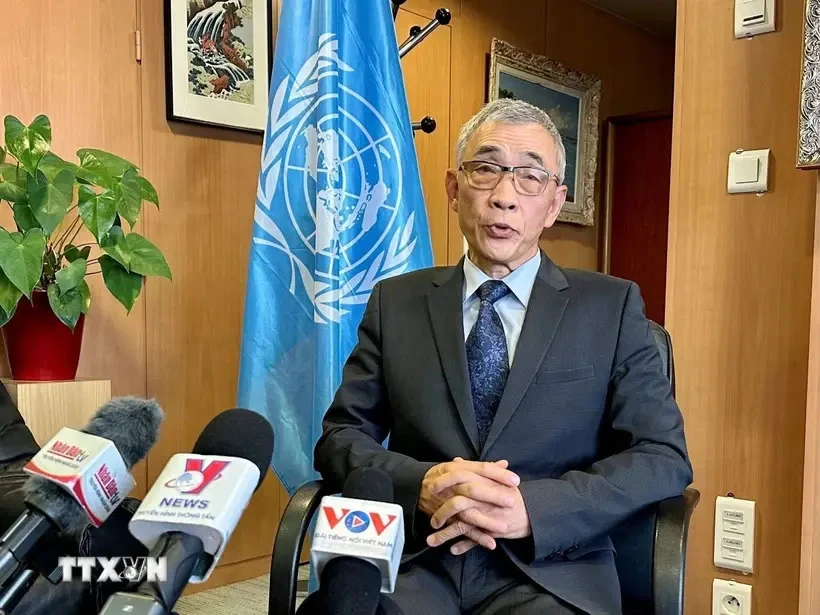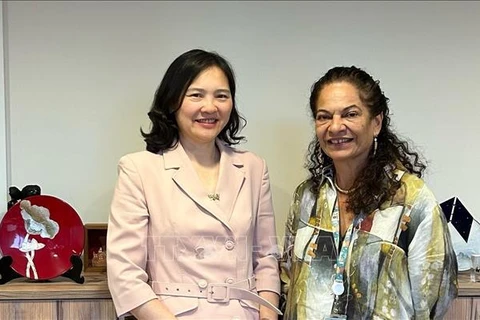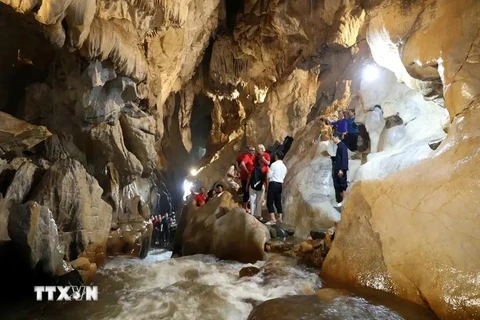
Hanoi (VNA) – Vietnam stands as a prime example of effective collaboration and continuous nurturing of its relationship with UNESCO, Deputy Director-General of UNESCO Xing Qu told the Vietnam News Agency in Paris, ahead of Party General Secretary and State President To Lam’s working session with UNESCO on October 7.
Xing highlighted Vietnam's remarkable transformation from a recipient of international aid to a proactive contributor to UNESCO's collective efforts. Over the past two decades, the country has been entrusted to play key roles in five essential bodies of UNESCO, namely Vice President of the UNESCO General Conference starting in November 2023, member of the UNESCO Executive Board for the 2021-2025 term, member of the World Heritage Committee for the 2023-2027 term, member of the Inter-Governmental Committee of the Convention for the Safeguarding of the Intangible Cultural Heritage (2003 Convention) for the 2022-2026 term; and Vice President of the Inter-Governmental Committee of the Convention on the Protection and Promotion of the Diversity of Cultural Expressions for the 2021-2025 term. Additionally, Vietnam remains a trusted partner of UNESCO in proposing and launching initiatives aimed at enhancing the role and position of UNESCO in the new global context.
UNESCO will continue to work closely with Vietnam to achieve national priorities, he said, adding that it will help the country with resources and knowledge to update and implement its cultural policies and legal frameworks, hasten a series of flagship projects and best practices in public-private partnerships, and enhance the autonomy of women and youth.
In the realm of education, UNESCO is dedicated to ensuring equitable and inclusive quality education for all, promoting lifelong learning opportunities that are crucial in today's digital age.
Vietnam's strides in digital transformation, particularly in education, are noteworthy. The country is focusing on equipping its youth with critical thinking, creativity, and digital competencies, preparing them for a rapidly evolving job market.
To further accelerate Vietnam's green transition, UNESCO will lend its expertise in integrating sustainability and environmental protection into school curricula. By promoting eco-friendly teaching methods and encouraging practical conservation projects, it aims to empower the Vietnamese education community to develop ecological capacities across all stakeholders.
The official also expressed his organisation’s commitment to assisting Vietnam in culture, natural and social sciences, humanity, information and communications, and recovery from recent Typhoon Yagi.
UNESCO is ready to back Vietnam's candidacy within the organisation's frameworks, and improvement of institutional and human resource capacities for effective natural resource management. It will also assist in implementing its recommendations on open science, which are designed to promote sci-tech and innovation in service of sustainable national development through the International Hydrological Programme.
As part of this collaborative effort, the organisation will work closely with the Vietnamese Ministry of Science and Technology and a team of experts to develop an ethical ecosystem for artificial intelligence (AI) in Vietnam, which aligns with the implementation of Vietnam's national AI strategy, he said./.






















